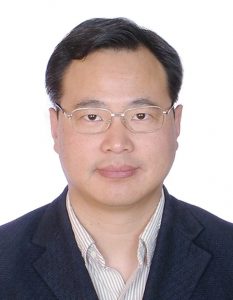Memo #116
(The second Memo from the Theme, Asia at the 2011 Cannes G20)
By Wang Yong – yowang [at] pku.edu.cn
 The G20 Summit in Cannes, from November 3 to 4, 2011, is possibly the last chance to prevent the beginning of a serious global financial meltdown. It’s a critical moment of confrontation between different blueprints on the future of global economic governance.
The G20 Summit in Cannes, from November 3 to 4, 2011, is possibly the last chance to prevent the beginning of a serious global financial meltdown. It’s a critical moment of confrontation between different blueprints on the future of global economic governance.
While the US puts the primary burden on the EU and on exchange rate alignments, the EU (minus the UK) is aiming to go beyond the euro crisis and advance its vision of global financial regulation. In this confrontation, many eyes are turning to China as the pivotal player. What will China do in Cannes? China is likely to act as a balancer between other G20 members, seeking to keep overall stability and lending support to the weaker player.
The Chinese government supports the objectives set by host France, and welcomes Europe’s leading role. China identifies itself with the long-term European goal of stabilizing the international financial system. But China is not able or willing to broker high-stake conflicts between the US and the EU.
China is counting on the EU economy to help stabilize Chinese exports and balance US influence in international affairs. China wants Europe to carry out more thorough reform to guarantee Chinese investments in the Euro relief package and to open EU markets to China. China may be willing to provide a mixed aid package to the Euro-zone, which may include the purchase of bonds and direct investments into European companies.
But China and Europe do not share all objectives. For instance, China and the US may side together on the issue of an international financial transaction tax (“Tobin Tax”). China is concerned that stringent controls of capital flows could impede the “going global” strategy of the Chinese financial industry. On the other hand, China wants to avoid being targeted by other G20 nations on its currency exchange rate. If China is forced to allow a rapid appreciation of its currency, there may be a collapse in exports and increased social instability.
Consequently, the Chinese may be more likely to play a “balancer” role between the US and the EU. While cooperating with France and Europe, the Chinese government simultaneously does not want to make its relationship with the US too complex.
About the Author:
Wang Yong – Professor at School of International Studies and Director at Center for International Political Economy, Peking University.
Links:
- Dr. Wang’s publications.
- China in the G20: a Balancer and a responsible contributor, East Asia Forum, October 2011.
Related Memos:
- Theme: Asia at the 2011 Cannes G20
- Sino-European Hope for the G20 in 2011 (Memo #63, by Yves Tiberghien). Translation in French available.
